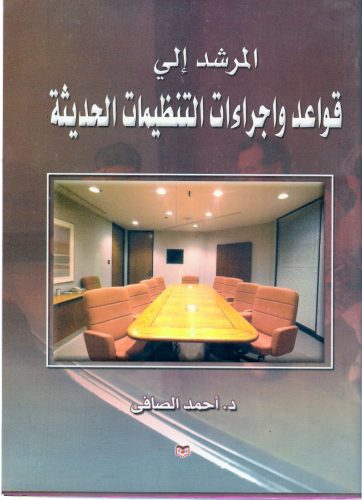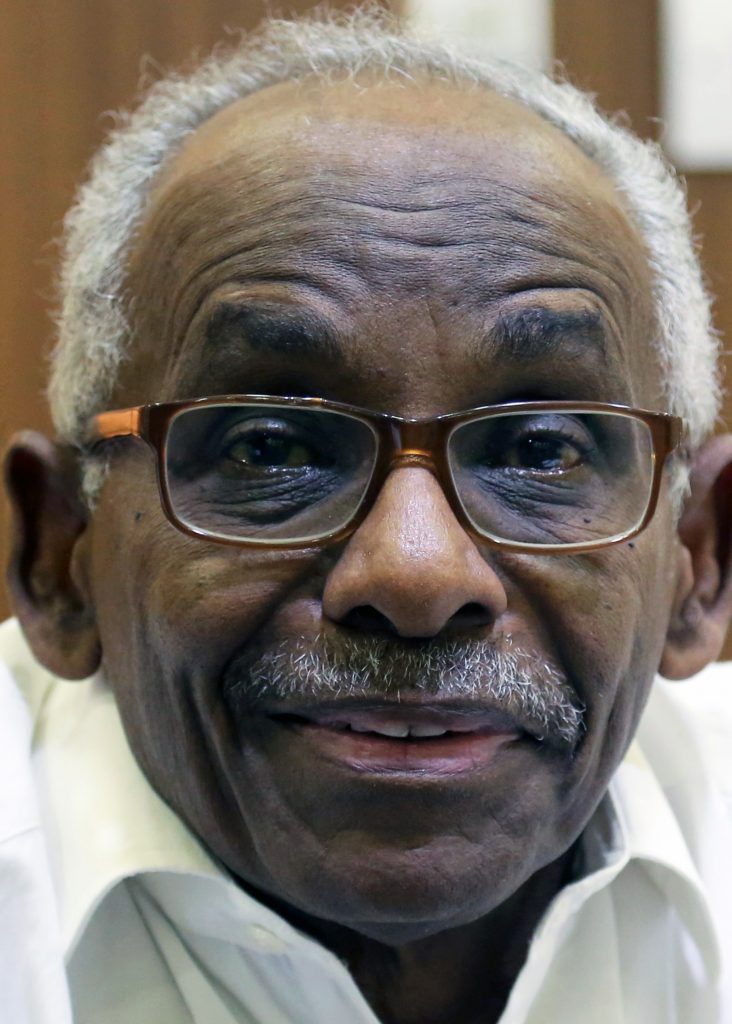Empowering Sudanese Citizens on Practical Democracy
Empowering Sudanese Citizens on Practical Democracy
By
Ahmed El Safi
CONCEPT NOTE
Draft One
Background
- Almost all current organizations in Sudan are institutionally weak and need capacity building to improve their deliberative skills. In addition, maintaining just and durable peace requires governance institutions that are inclusive of and responsive to all Sudanese citizens. Unfortunately, all Sudan institutions and participatory procedures have been worn out by war, decades of inequitable access to resources, poverty, erosion by corruption, weak administration, a poor educational system, and a suppressed press.
- This project addresses the legislative assemblies, ministries, municipalities, public corporations, more than 500 registered non-governmental organizations, more than 26 trade unions, over 100 political parties, thousands of companies, educational institutions, and uncountable societies and associations, in addition to religious and clan fraternities that form the country’s legislative, executive and administrative organs that control the industry and public and social life matrix. Practically every group conducts business in meetings, deliberate matters, vote, and take decisions.
- Many meetings are held every day. None use formal written parliamentary procedures. People frequently need to know how to present their ideas in a parliamentary context. In this meeting-rich environment, there are many reasons for a person to become proficient in parliamentary procedure:
- Achieve professional and personal goals.
- Assume leadership roles in organizations.
- Help organizations realize their vision.
- Comply with the law.
- Disagree vigorously with others and remain cordial.
- There are no means of improving one’s knowledge or gain experience either as an individual or organization. Universities and schools do not offer classes on rules of order. There is no formal or informal teaching or training for public officers, civil society leaders, or general citizens. This is compounded by a lack of relevant sourcebooks in Arabic.
- This project enhances the capacities of Sudanese citizens to strengthen their participation in grassroots democracy, broaden their understanding and raise awareness.
- Noting that a bill of rights has been embodied in the Sudan Interim Constitution (2005), implementing these rights and liberties requires sweeping reforms in governance, creating effective institutions, and significant capacity building at all governmental and non-governmental structures.
- To achieve democratic transformation and sustain democracy is through compliance with a democratic procedure that is clearly understood and implemented. All citizens should be informed of their fundamental rights and how to maintain them properly. In addition, citizens need to know how to organize themselves in groups, mee, and present their ideas in a parliamentary context.
- All citizens are the eventual voters in the country’s general elections. Their wise, informed, educated ballot decides the country’s future leaders. Therefore, citizens must understand how to vote in elections at different levels of organization and government.
- The overall goal of this project is to promote the democratic potential of Sudanese citizens to be better members and leaders by educating and instructing them on democratic values, procedures, and practices.
- The project provides authoritative information on organizing in groups, holding effective meetings, deliberating matters, and making decisions. It is an empowerment process that leads to citizens’ responsible participation in democratic institutions.
- The project will be executed using the approaches that promote active participation and facilitate learning with and from the target groups in different forums and age groups. Selection of the target group will ensure the broadest representation of diversity to enrich the learning process and facilitate spontaneous and planned partnerships, coalitions, alliances, and networks. The project will encourage and provide enough room for active and constructive deliberative engagements among participants, setting the agenda for future work and beginning a change process. This dynamic participatory exercise will facilitate the development of an effective and efficient model of an advocacy campaign and spearhead the spread of the knowledge and skills of the parliamentary procedure throughout Sudan.
- The importance and need for a parliamentary procedure will be spread nationwide through planned awareness-raising campaigns. These activities will be initiated and maintained by the structures established through this project. In addition, the informed participants will continue spreading the message through their presence in their organizations as members and executive officers.
- Cross-fertilization between youth leaders and activists via the many communication channels provided in this project is key to this process. Citizens trained in parliamentary procedure will form a skilled advocacy group in this field. The project expects more groups to learn the skills and knowledge to facilitate meaningful and effective debate when transacting business. These groups will be attracted through planned activities. Training courses and workshops will be replicated in other surroundings.
General objective
- To enhance the capacity of the Sudanese youth and strengthen their participation in grassroots democracy; broaden their understanding and awareness to contribute to democracy strengthening.
Specific objectives
- Engage selected leaders in five Sudanese university student unions, five political parties, five trade unions, five NGOs, five professional societies and associations, and executive officers in SCOVA and the Cultural Groups in the Ministry of Culture in workshops to engage in dialogue with counterparts on the democratic process on grassroots democracy.
- Broaden the understanding and raise awareness of the target group’s contribution to practical democracy strengthening.
- Design and implement a capacity-building program and community capacity for effective participation in grassroots practical democracy in Sudan.
- Strengthen the networking capabilities of the target group by establishing effective, responsive, democratic, and “ordinary young men- and women-friendly” channels of communication, including internet-based communication.
- Sharpen the leadership skills of the targeted youth through training in advocacy strategies for effective policy formulation on practical democracy issues.
- Set up partnerships within the target group.
Expected Results
In three years, this action will help to consolidate a peaceful, tolerant society where citizens are well informed of their constitutional rights; promoted their chances to be better members and leaders by educating and instructing them on democratic values, procedures, and practices; developed abilities to organize informal groups, manage organizations, and understand basic deliberative skills involved in transacting business fairly and efficiently, and developed an awareness-raising program to ensure that parliamentary procedure and practices are widely known and understood.
Project Source Material and Expertise
Ahmed El Safi’s book: A Manual of Rules and Procedure of Modern Organizations (1999, 2007) is a recognized authority manual on parliamentary procedure in Arabic. This project draws heavily from this book. Training the trainers will be conducted by a team of parliamentarians, journalists, sociologists, and lawyers.
Project Implementation
The project will be implemented in three phases in three years:
- Phase One: Preparation (one year)
- Phase Two: Implementation (18 months)
- Phase Three: Advocacy and sustainability (six months)

Thanks for submitting your comment!https://gramster.ru/# pinup 2025
http://gramster.ru/# пин ап зеркало
online shopping pharmacy india: п»їlegitimate online pharmacies india – top 10 online pharmacy in india
Online medicine order top online pharmacy india Online medicine home delivery
http://canadianpharmacy.win/# buying from canadian pharmacies
http://mexicanpharmacy.store/# medication from mexico pharmacy
https://canadianpharmacy.win/# canada drugs online
medication canadian pharmacy [url=http://canadianpharmacy.win/#]best canadian online pharmacy[/url] best rated canadian pharmacy
https://mexicanpharmacy.store/# mexican border pharmacies shipping to usa
https://mexicanpharmacy.store/# reputable mexican pharmacies online
online pharmacy india: indian pharmacy paypal – pharmacy website india
http://mexicanpharmacy.store/# medication from mexico pharmacy
http://mexicanpharmacy.store/# buying prescription drugs in mexico
http://indianpharmacy.win/# world pharmacy india
pharmacies in mexico that ship to usa [url=https://mexicanpharmacy.store/#]buying prescription drugs in mexico[/url] mexican drugstore online
http://indianpharmacy.win/# reputable indian pharmacies
buying from online mexican pharmacy: п»їbest mexican online pharmacies – mexico pharmacies prescription drugs
https://canadianpharmacy.win/# canadapharmacyonline com
Mitolyn